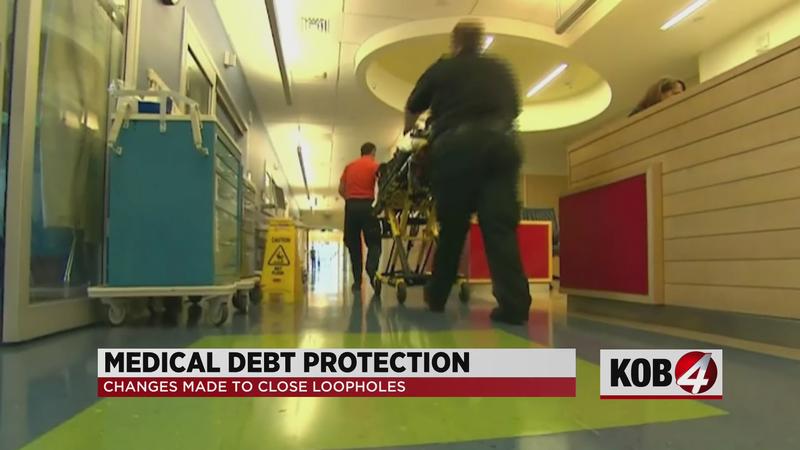New rules help protect low-income patients from being sued by medical providers, hospitals
[anvplayer video=”5085053″ station=”998127″]
ALBUQUERQUE, N.M. – The Patient Debt Collection Protection Act passed in the 2021 legislative session aimed to protect low-income patients from being sued or sent to collections. Except back then, it was up to the patients to prove they were low income.
“For a household of four, your household gross income couldn’t go above about $4,400 a month,” said Nicolas Cordova with the New Mexico Center of Law and Poverty.
Now, after a public hearing and a number of advocates and patients voicing their concerns:
“The state agency in charge of filling in the details of the law, has now clarified that if a hospital or provider wants to sue you or send you to collections, they have to first check your income status,” said Cordova.
The fear of medical debt is something Dr. Tasha Barnes, a family practice physician, sees first hand all the time.
“I had a mom who had sought care for her daughter and they had already medical debt. And then the mom saw me as a patient and she was very ill, she had a lot of abdominal pain. And she was basically very afraid to seek care in the emergency room, even though we recommended that because she was so ill,” said Barnes.
That mom ended up in the ICU.
“This is a case where if she had gone to the emergency room fairly quickly and not been afraid to do that, due to the medical debt, we could of hopefully, had a much better outcome for her,” Barnes said.
Providers like her hope this law will encourage more people to seek care when they need it.
“That woman’s medical bill was over $200,000 and with her income status, there is no way she would ever be able to pay for that bill,” said Barnes.
“When you receive services. They need to screen you for that hospital’s financial assistance. And so if you are uninsured and you go to a hospital, that hospitals required to check if you should qualify for some discounted rate or a payment plan,” said Cordova.
The state also extended the protection from one to two years.
“It provides peace of mind for patients. When you know you have this more extended period. You know that as soon as you jump right above this income threshold of two times the poverty line. The hospital is not immediately going to sue you or send you to collections, which then is going to push you immediately below that poverty line,” Cordova said.
After two years, the hospital has to reassess your income level.
“It doesn’t matter how long ago you received your services or received that billing statements. If they want to sue you right now. If they want to send you to collections right now. This law should protect you,” said Cordova.
